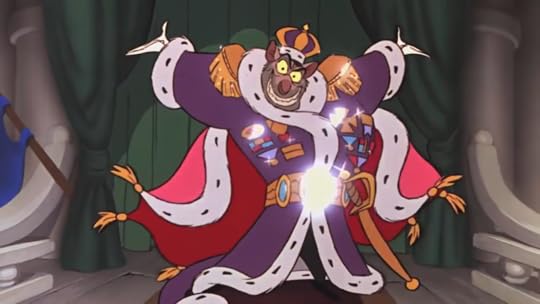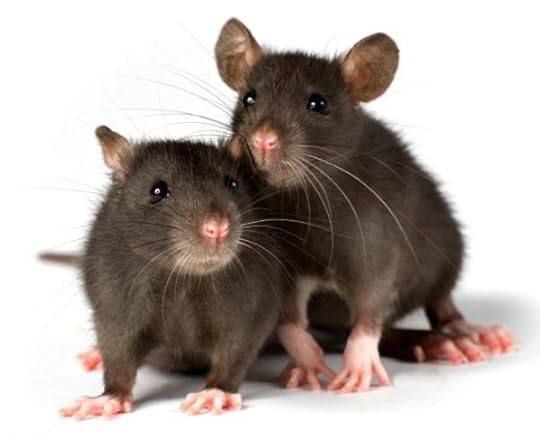What do you think?
Rate this book


320 pages, Paperback
First published January 1, 1998
"Everything starts somewhere, although many physicists disagree."True to Pratchett's wit and wisdom, even China Mieville's frustratingly good writing had to have its beginnings. And so it begins here, in his first novel 'King Rat', which - as many readers have noted - reads like a close cousin¹ to Neil Gaiman's 'Neverwhere'.
¹ A cousin that the elderly relatives mention only in hushed whispers at family reunions. The heavily tattooed one, with piercings in places you don't want to think of, clad in studded leather, riding a flashy motorbike, smelling of stale alcohol, with needle tracks on his arms. That one.It's the first novel of His Chinaness (the expression I shamelessly stole from Richard and plan to keep using for a while), and it shows. It lacks the

(Illustration by Richard A. Kirk - found here)
“I can squeeze between buildings through spaces you can’t even see. I can walk behind you so close my breath raises gooseflesh on your neck and you won’t hear me. I can hear the muscles in your eyes contract when your pupils dilate. I can feed off your filth and live in your house and sleep under your bed and you will never know unless I want you to.”
“The trains that enter London arrive like ships sailing across the roofs. They pass between towers jutting into the sky like long-necked sea beasts and the great gas-cylinders wallowing in dirty scrub like whales.”
'I’m just one of you,’ he said.
‘I’m Citizen Rat.'

“Row upon row of anxious eyes, gazing at him, demanding that he command them. They oppressed him.”
“You don't need champions. It's time for a revolution. You were led by a monarch for years, and he brought you to disaster. Then years of anarchy, fear, searching for a new ruler, the fear isolating you all so you didn't have faith in your nation.”

SQUEEEEEEEEK!